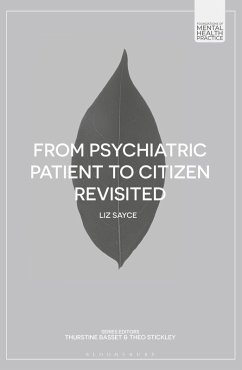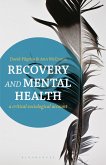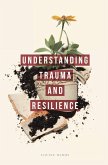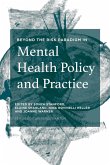Combatting mental health stigma and discrimination has moved from a radical idea in the 1990s to mainstream policy today. However, there are huge questions about how to do it effectively, and the journey to get equal life chances is still a long one.
As part of the Foundations of Mental Health Practice series, this book explores these important questions and considers the solutions. It pulls together ground-breaking examples and the latest research evidence to argue for a compelling new theory and agenda for social change to promote equality and citizenship. Accessibly written, it demonstrates how mental health practitioners of all disciplines can stand alongside individuals with lived experience and their organisations to challenge discrimination and participate in all aspects of the community. It also addresses the role of families, friends and those with a policy, campaigning or legal interest. Completely up to date, it draws on new research and interviews, as well as the author's 30 years of experience working in the field.
With chapter summaries, further reading and reflective exercises, this book offers support for research and practice, making it an essential and important read for any student or practitioner in the field who advocates equality, and for people with lived experience, families, friends and campaigners.
As part of the Foundations of Mental Health Practice series, this book explores these important questions and considers the solutions. It pulls together ground-breaking examples and the latest research evidence to argue for a compelling new theory and agenda for social change to promote equality and citizenship. Accessibly written, it demonstrates how mental health practitioners of all disciplines can stand alongside individuals with lived experience and their organisations to challenge discrimination and participate in all aspects of the community. It also addresses the role of families, friends and those with a policy, campaigning or legal interest. Completely up to date, it draws on new research and interviews, as well as the author's 30 years of experience working in the field.
With chapter summaries, further reading and reflective exercises, this book offers support for research and practice, making it an essential and important read for any student or practitioner in the field who advocates equality, and for people with lived experience, families, friends and campaigners.









